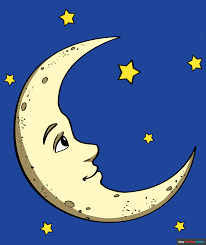Thoughts?
It put a bit of narrative weight behind the monstrosity of the bomb and it’s use and depicted it in a very visceral horrifying way. But… the narrative weight was almost entirely on how it effected Robert’s feelings about the project and future projects and the consequences he experienced professionally and socially from that change in sentiment. Which is to say… man heads project to build bomb, bomb kills hundreds of thousands of civilians and starts global nuclear armament, man feels regret and gets career ruined as a result. So, yeah, I think he’s pretty right. They dodged depicting the actual devastation of the Japanese people, not even showing the bombs going off in the cities, nor showing a single Japanese person. It’s all off camera and the only real lasting effect demonstrated is Robert’s guilt. That’s obviously central to a biopic about Oppenheimer, but they made a specific choice to avoid showing the actual destruction, probably to maintain as much sympathy as possible for him, I think.
Or, it’s about Oppenheimer. We all know what the bombs did to Japan. It’s well known history. Not every detail of a world needs to be explored and explained again when we already know it. I don’t think most World War II war movies detail the end of the war. Most movies don’t detail singular deaths with accuracy.
I’m pretty sure the images from Japan were shown to Oppenheimer. I’m also pretty sure it shaped his decisions in what he created. I think OP is correct. Omitting it created sympathy and drove the narrative that Strauss got away with framing him.
Sure, but the major shift in his life was over the devastation of Hiroshima and Nagasaki, and yet they do it entirely off screen. “Tell don’t show” isn’t typically considered a trait of great film making/story telling.
And, yes, they did show Robert’s imagination of the cheering audience being burned alive, which was horrifying. But it could also be argued that it is a bit insensitive to the real loss that they had to use white American people burning alive as stand ins to give you that visceral emotional punch instead of the actual Japanese people that actually died.
Also, no story should ever assume the audience is intimately familiar with history. It only becomes common knowledge by exposing people to it over and over. If you assume everyone knows it and so nobody ever shows it again, people never have a chance to gain that knowledge that makes it common. Particularly for something as steeped in propaganda as this event was. I’m a pretty well educated person and I have regularly learned shit in my adult life that my history lessons casually glossed over. The Nuclear bombing of Japan, specifically, is 1000% one of the most glossed over events in American education, in my experience.
“…and now back to my soulless, utterly mid Avatar films that I’ve decided to end my career on.”
Hey we use Avatar to talk about the wrongs mankind has done to the ecosystem.
I think. Maybe? I have no idea what Avatar is really about beyond being Ferngully with tall blue people. And I watched both movies.
Nolan’s film tells the story of one man’s experience. Cameron is criticizing it for not telling a different story, one that focuses on the horror of the violence. It’s not a cop out to tell a different story. Cameron, while well meaning, is just full of shit here. I hope he makes his own movie exploring these subjects instead of more blue people fantasy cartoons.
Most of the movie was about the man himself, but it did end with a very clear defense of the bombings. It was a compelling defense, and I don’t know if it was based on Oppenheimer’s own reasoning, but it did digress from the biopic format.
makes me wonder why the marines on pandora don’t just nuke the entire planet from orbit. free access unobtanium.
Avatar has so many plot holes you can fly a toruk through them.
Cameron ain’t well-meaning, he’s just a jackass
I think there are parts of history where you have to tell the larger story and not just focus on one man’s experience.
He didn’t have to do anything though, it’s his fucking movie lol
Of course, but that doesn’t mean that people aren’t allowed to criticise his decisions.
Oppenheimer was already really long, and I feel like it portrayed the complexity of the moral struggle Oppenheimer faced pretty well, as well as showing him as the very fallible human being he was. You can’t make a movie that talks about every aspect of such an historical event as the development and use of the first atomic bombs. There’s just too much. It would have to be a documentary, and even then it would be days long. Just because it wasn’t the story James Cameron considers the most compelling/important about the development of the atomic bomb doesn’t mean it’s not a compelling/important story.
It was a dog shit narrative mess that went nowhere. Barbie was far superior and I had to be tricked to see it.
I mean, it’s Cameron. Great director, but an absolute asshole. As others have already said, you don’t have to go for the throat to make a good biopic or semi-biographical movie like Oppenheimer. You don’t have to always tell the exact same kind of story.
This is just Cameron being his usual dickish self.
And this is basically a press tour for a film he hasn’t even started making yet lol. Dudes lost it.
My immediate thought is that I don’t really care. Why?
Hello @[email protected],
FYI [email protected] is more active, feel free to crosspost there
Nah it’s cool I’ll hang out here
We have weekly threads, flairs and everything!
OK you tempted me I’ve subscribed
Feels like it’s a cop out to just go straight for that ‘third rail’, as he puts it. Directors portraying characters and scenarios from WW2 Nazi Germany have to use restraint in depicting atrocities, in order to leave room for nuanced stories (see The Zone of Interest - 2023). Is Cameron just trying to drum up anticipation for his film? And will it be a Hiroshima action piece?
Curious to see how he works nearly drowning his actors into this one.
From the guy who glossed over real historical/social issues in Titanic?
Who ignored many of the moral issues of Bruce Wayne preferring to play dress up instead of working to fix Gotham?[Edit: I’m an idiot] Or who ripped off storylines from better movies, slapped Papyrus font on the title, and made an overly indulgent series of movies that are more pretty screensaver than cinema? He can fuck off.Did you just say… Papyrus ?
Nolan directed the Batman movies, not Cameron.
You can tell my brain already left for the long weekend - no idea where that brain fart came from.








